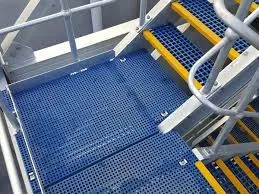
-
 Afrikaans
Afrikaans -
 Albanian
Albanian -
 Amharic
Amharic -
 Arabic
Arabic -
 Armenian
Armenian -
 Azerbaijani
Azerbaijani -
 Basque
Basque -
 Belarusian
Belarusian -
 Bengali
Bengali -
 Bosnian
Bosnian -
 Bulgarian
Bulgarian -
 Catalan
Catalan -
 Cebuano
Cebuano -
 China
China -
 China (Taiwan)
China (Taiwan) -
 Corsican
Corsican -
 Croatian
Croatian -
 Czech
Czech -
 Danish
Danish -
 Dutch
Dutch -
 English
English -
 Esperanto
Esperanto -
 Estonian
Estonian -
 Finnish
Finnish -
 French
French -
 Frisian
Frisian -
 Galician
Galician -
 Georgian
Georgian -
 German
German -
 Greek
Greek -
 Gujarati
Gujarati -
 Haitian Creole
Haitian Creole -
 hausa
hausa -
 hawaiian
hawaiian -
 Hebrew
Hebrew -
 Hindi
Hindi -
 Miao
Miao -
 Hungarian
Hungarian -
 Icelandic
Icelandic -
 igbo
igbo -
 Indonesian
Indonesian -
 irish
irish -
 Italian
Italian -
 Japanese
Japanese -
 Javanese
Javanese -
 Kannada
Kannada -
 kazakh
kazakh -
 Khmer
Khmer -
 Rwandese
Rwandese -
 Korean
Korean -
 Kurdish
Kurdish -
 Kyrgyz
Kyrgyz -
 Lao
Lao -
 Latin
Latin -
 Latvian
Latvian -
 Lithuanian
Lithuanian -
 Luxembourgish
Luxembourgish -
 Macedonian
Macedonian -
 Malgashi
Malgashi -
 Malay
Malay -
 Malayalam
Malayalam -
 Maltese
Maltese -
 Maori
Maori -
 Marathi
Marathi -
 Mongolian
Mongolian -
 Myanmar
Myanmar -
 Nepali
Nepali -
 Norwegian
Norwegian -
 Norwegian
Norwegian -
 Occitan
Occitan -
 Pashto
Pashto -
 Persian
Persian -
 Polish
Polish -
 Portuguese
Portuguese -
 Punjabi
Punjabi -
 Romanian
Romanian -
 Russian
Russian -
 Samoan
Samoan -
 Scottish Gaelic
Scottish Gaelic -
 Serbian
Serbian -
 Sesotho
Sesotho -
 Shona
Shona -
 Sindhi
Sindhi -
 Sinhala
Sinhala -
 Slovak
Slovak -
 Slovenian
Slovenian -
 Somali
Somali -
 Spanish
Spanish -
 Sundanese
Sundanese -
 Swahili
Swahili -
 Swedish
Swedish -
 Tagalog
Tagalog -
 Tajik
Tajik -
 Tamil
Tamil -
 Tatar
Tatar -
 Telugu
Telugu -
 Thai
Thai -
 Turkish
Turkish -
 Turkmen
Turkmen -
 Ukrainian
Ukrainian -
 Urdu
Urdu -
 Uighur
Uighur -
 Uzbek
Uzbek -
 Vietnamese
Vietnamese -
 Welsh
Welsh -
 Bantu
Bantu -
 Yiddish
Yiddish -
 Yoruba
Yoruba -
 Zulu
Zulu
Durable Fiberglass Solutions for Enhanced Corrosion Resistance and Longevity in Harsh Environments
Corrosion Resistant Fiberglass A Revolutionary Material for Harsh Environments
In today's industrial landscape, the need for durable and resilient materials has never been more critical. Among these, corrosion-resistant fiberglass has emerged as a leading solution, offering unparalleled performance in harsh environments. This innovative material combines the lightweight and versatile qualities of fiberglass with advanced chemical resistance, making it an ideal choice for industries ranging from construction to aerospace.
What is Corrosion Resistant Fiberglass?
Corrosion-resistant fiberglass is a composite material primarily composed of glass fibers and a resin matrix. The glass fibers provide strength and durability, while the resin—often made from epoxy, polyester, or vinyl ester—offers excellent resistance to corrosion, chemicals, and extreme temperatures. This unique combination makes fiberglass significantly superior to traditional materials, such as metals, especially in environments that expose them to moisture, corrosive chemicals, or extreme weather conditions.
Key Benefits of Corrosion Resistant Fiberglass
1. Durability One of the most significant advantages of corrosion-resistant fiberglass is its durability. Unlike metals that can rust and degrade over time, fiberglass maintains its structural integrity in challenging conditions. This longevity translates to reduced maintenance costs and longer service life for equipment and structures.
2. Weight Fiberglass is considerably lighter than metals, which makes it easier to handle and install. This characteristic is especially beneficial in applications where weight reduction is paramount, such as in the aerospace and automotive industries. Lighter materials can lead to reduced fuel consumption and enhanced performance.
3. Chemical Resistance One of the standout features of corrosion-resistant fiberglass is its excellent resistance to chemicals. It can withstand exposure to a wide range of acids, alkalis, and other aggressive substances without degrading. This property is particularly valuable in chemical processing plants, waste treatment facilities, and other environments where materials are regularly subjected to harsh chemicals.
4. Versatility Corrosion-resistant fiberglass can be molded into various shapes and forms, allowing for customization that meets specific project requirements. This adaptability makes it suitable for a range of applications, from pipes and tanks to structural components and architectural features.
corrosion resistant fiberglass

5. Thermal Insulation In addition to its mechanical properties, fiberglass also offers thermal insulation capabilities. This is crucial in various applications where temperature fluctuations need to be managed. Insulating properties help maintain temperature consistency, reducing energy costs and enhancing overall efficiency.
Applications of Corrosion Resistant Fiberglass
The applications for corrosion-resistant fiberglass are extensive and diverse. In the construction industry, it is used for building facades, roofing systems, and structural components that need to withstand environmental stressors. In chemical plants, fiberglass is employed in containment vessels, ducts, and piping systems, ensuring safe handling of corrosive materials.
Furthermore, the aerospace industry benefits from this material's lightweight nature, using it for components that demand both strength and minimal weight. The marine industry also capitalizes on corrosion-resistant fiberglass in boat hulls and structural supports, where exposure to saltwater can lead to significant material degradation for conventional alternatives.
Environmental Sustainability
As industries increasingly focus on sustainability, corrosion-resistant fiberglass stands out as an environmentally friendly option. The longevity and reduced maintenance needs of fiberglass contribute to fewer resources being consumed over time. Additionally, advancements in recycling technologies are making it possible to reclaim fiberglass waste, further promoting a circular economy.
Conclusion
Corrosion-resistant fiberglass represents a significant advancement in materials science, providing industries with an effective solution to the challenges posed by corrosive environments. Its combination of durability, lightweight, chemical resistance, and versatility makes it an indispensable asset for modern applications. As the demand for sustainable and resilient materials continues to grow, corrosion-resistant fiberglass will undoubtedly play a pivotal role in shaping the future of construction, transportation, and beyond. Embracing this innovative material may not only enhance operational efficiency but also contribute to a more sustainable industrial landscape.









